#Jean Guitton
Explore tagged Tumblr posts
Text
L’essence du singulier
“Le philosophe pensant à la mort” ©Philippe Quéau (Art Κέω) 2024 Je crois qu’on est bien plus grand que tout ce que l’on sait, bien plus grand que ce que l’on croit que l’on est, et qu’on est aussi bien plus petit que l’infinité des choses qu’on ignore — ce qui laisse évidemment beaucoup de marge. De marge pour quoi ? Pour l’imagination et pour la spéculation. Peu avant de mourir, M. Pouget…

View On WordPress
0 notes
Text

Les plus beaux actes d'amour sont ceux accomplis dans le secret du cœur.
- Jean Guitton
54 notes
·
View notes
Text
“Originality exists in every individual because each of us differ from the others. We are all primary–numbers divisible only by ourselves.”
-Jean Guitton
3 notes
·
View notes
Text
La sincérité ne consiste pas à dire tout ce que l’on pense… Mais de penser tout ce que l’on dit.......💞✨

Jean Guitton
31 notes
·
View notes
Text
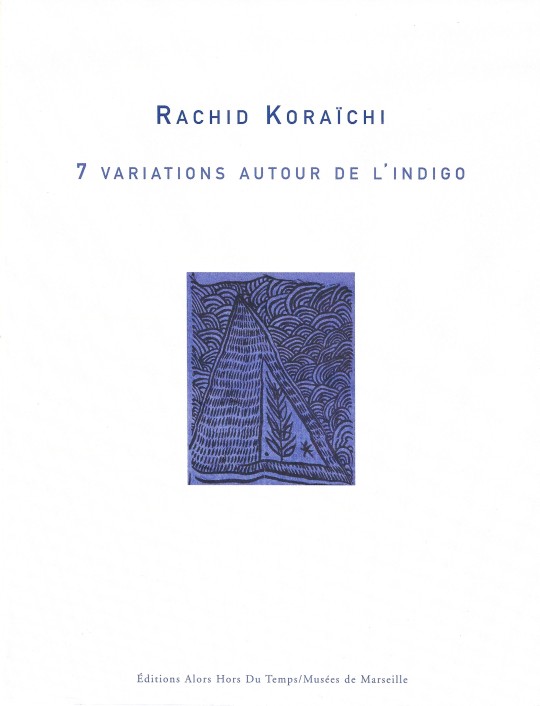
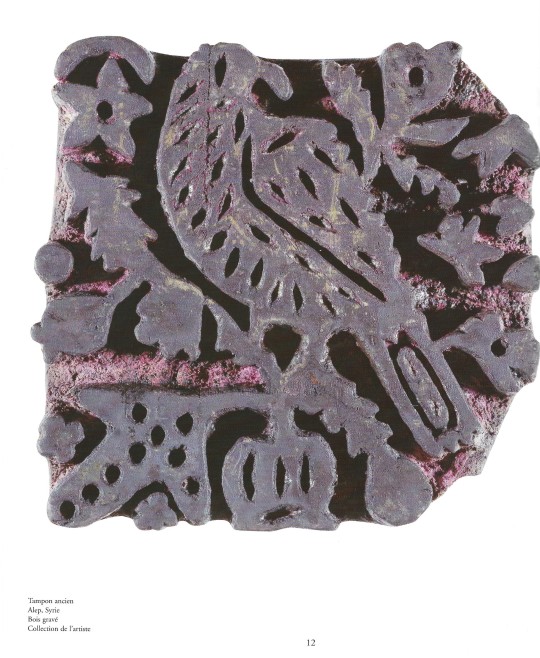
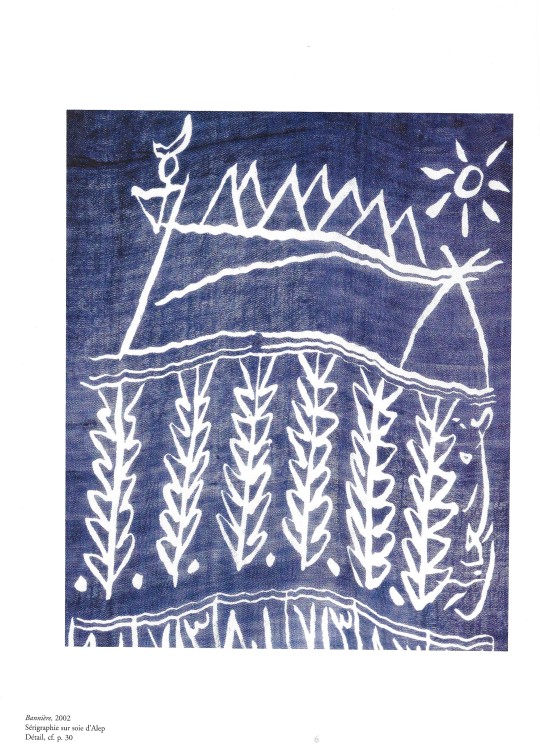
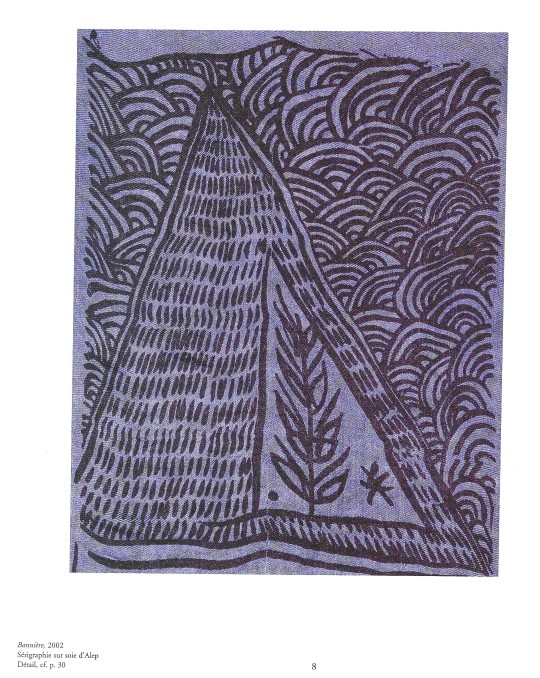
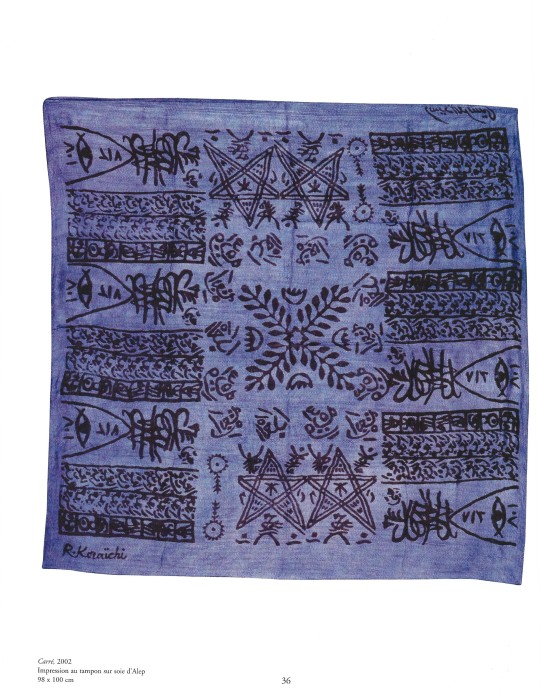
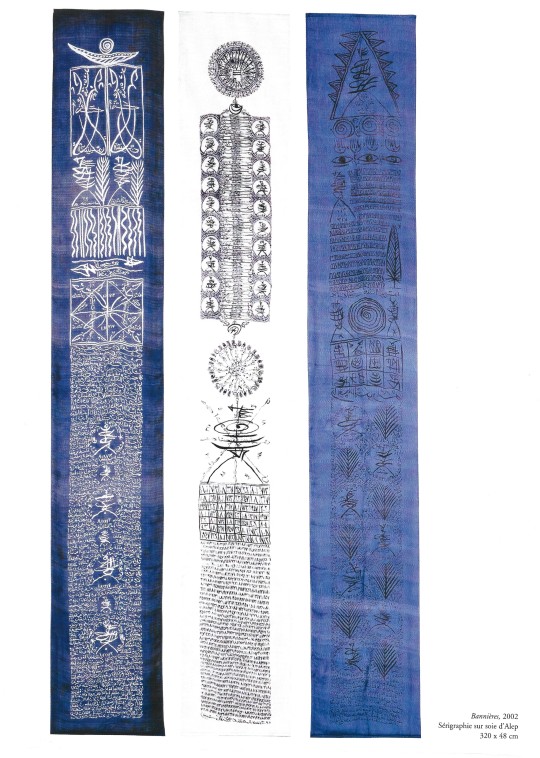

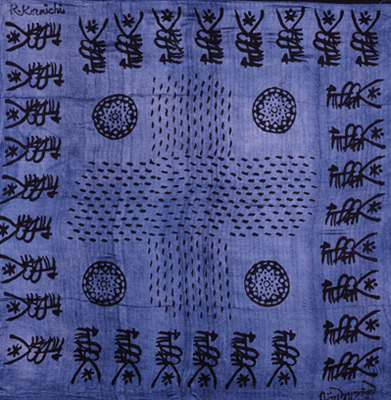
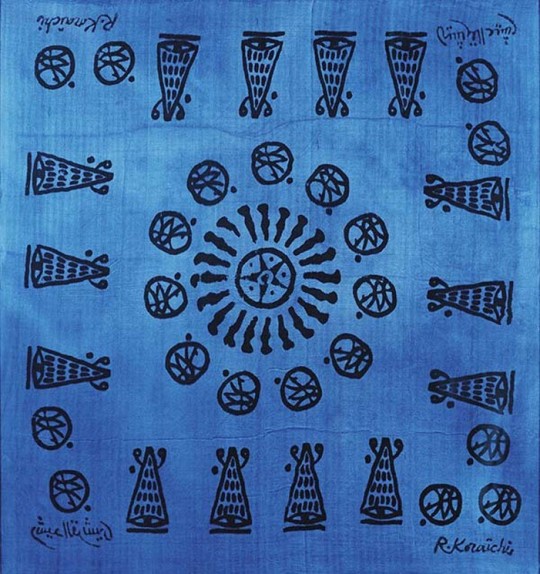
Rachid Koraïchi 7 Variations autour de l'indigo
René Guitton, Danièle Giraudy
Photographies Jean Bernard, Rachid Koraïchi, Jean Pierre Linuésa
Éditions Alors Du Temple/Musées de Marseille, 2003, 48 pages, 21x27,5cm, ISBN 978291793248
euro 40,00
email if you want to buy : [email protected]
Exposition du 28 janvier au mars 2003 Galeries de la Vieille Charité, Musées de Marseille
Associant les techniques ancestrales des tampons de bois en usage à Alep (Syrie) et la couleur traditionnelle des indigotiers marseillais, R. Koraïchi a créé de nouvelles étoffes : aujourd'hui exposées sous forme de bannières ou de carrés, elles se déclinent autour du chiffre 7 et de sa mystique. L'artiste méditait. Il était venu chercher l'inspiration dans cette cité vieille de plusieurs millénaires. Alep au nord de la Syrie. Comme les couleurs voyagent, il voulait retrouver des traces de bleu sur cette route de l'Inde d'où venait l'indigo. Car en Alep, au fil des siècles, cette teinture avait été l'objet de nombreuses études dont certains secrets furent peu à peu révélés: indigo mêlé d'écorce de grenade avec addition d'eau de dattes ou de suc de raisin noir broyé ou de figues piétinées. Ces macérations étranges conféraient à l'indigo d'Alep une haute réputation dans toute la Méditerranée, Rachid Koraïchi souhaitait aussi acquérir de la soie, chiner de ces tampons anciens que les imprimeurs de tissu utilisaient encore au début du XXe siècle. Il les mêlerait aux siens qu'il allait créer ici, inspiré, comme nulle part ailleurs, par les étoffes imprimées. L'ambassade de France, à Damas, et les responsables des services culturels, sensibles au projet à ce point prometteur lui accordèrent une aide chaleureuse et il fut hébergé en une demeure, vestige du Mandat français, toute proche de la citadelle. L'artiste allait y travailler en paix et remonter la mémoire de l'indigo et des routes de la soie.
23/09/23
#Rachid Koraïchi#indigo#art exhibition catalogue#Marseille 2003#tampons de bois#routes de la soie#textiles books#fashionbooksmilano
14 notes
·
View notes
Text
“It is Mary who will save France and the world”
One day, after taking communion, Jesus told Marthe Robin (1) about the great graces he wanted to pour out on the whole world and particularly on France:
“I reserve for the whole world, and especially for France, treasures of light, deluges of graces ... Until the end of time, I will perform prodigies. Nothing can stop me, neither the ferocity of demons, nor the resistance of men ... I will strike them down” (November 6, 1931).
“France will sink to the bottom of the abyss, to the point where no human solution for recovery will be seen. She will remain all alone, abandoned by all the other nations who will turn away from her, after having led her to her doom. She won't be in this position for long. She will be saved, but not by arms, nor by the genius of men, because they will have no human means left...
France will be saved, because the Good Lord will intervene through the Blessed Virgin. She will save France and the world...
The Good Lord will intervene through the Blessed Virgin and the Holy Spirit: this will be the new Pentecost, the second “advent” of the Holy Spirit. It will be a new era, and from then on Isaiah's prophecy of the union of hearts and the unity of peoples will be fulfilled.
After the new “coming” of the Holy Spirit, which will manifest itself more particularly in France, she will truly realize her mission as the Church's eldest daughter, and the trial, by purifying her, will restore her lost title.”
(February 10, 1936) (2).
Questions de foi
(1) Marthe Robin was born on March 13, 1902, in Châteauneuf-de-Galaure (Drôme), France. Little by little, she came to understand that as a laywoman she was called to live the offering of her whole life, in union with Jesus crucified for the Church and the world. She went 50 years without eating or drinking anything other than the weekly Eucharist. Until her death on February 6, 1981, Marthe lived in a small room on the farm at Châteauneuf-de-Galaure.
(2) This process of falling and rising was described by Marthe as early as 1936, and also in 1941 by Father Coulon, in 1943 by Bishop Lavarenne, in 1970 by Jean Guitton, in 1974 by Father Yannick Bonnet, and so on.
Hail, Mary, full of grace, the Lord is with you; blessed are you among women, and blessed is the fruit of your womb, Jesus. Holy Mary, Mother of God, pray for us sinners now and at the hour of our death. Amen.
0 notes
Text
Nouvelles d'hier : histoire de vampire - Le Gardien du cimetière de Jean Ray 1919
Jean Ray (1887-1964) – La raison pour laquelle je devins le gardien du cimetière de Saint-Guitton, monsieur le Juge d’instruction ? Mon Dieu, la voici : la faim et le froid. Imaginez-vous quelqu’un, vêtu d’un complet d’été, ayant fait soixante kilomètres séparant deux villes : celle où on lui a refusé tout travail et tout secours, et celle qui fut son dernier espoir. Imaginez-vous cet être…
0 notes
Text
«É preciso nuncar esquecer que o que nos é oferecido nesse instante não nos será proporcionado de novo. O que em determinado momento omitimos, omiti-lo-emos para todo sempre.»
O trabalho intelectual, Jean Guitton.
0 notes
Link
10 August 2024 / ARTIST LARISSA NOURY FROM PARIS WRITES: OLYMPIC GAMES 24: “HYMNAL, HUMANITY GATHERED” – ART EXHIBITION UNIQUE ARTISTIC EXPERIENCE IN PARIS “COLOR IS THE GLORY OF LIGHT” – JEAN GUITTON THE RENOWNED ARTIST LARISSA NOURY, ARCHITECT-COLOURIST AND PROFESSOR OF COLOUR ITECOM ART & DESIGN, PARIS WRITES ON OLYMPIC GAMES 24: “HYMNAL, HUMANITY GATHERED” […]
0 notes
Text



One of the world's rarest and most expensive books, still highly mysterious, and before its exhibition at CFM Gallery, known only to a small group of bibliophiles and collectors.
The Apocalypse of Saint John
L'Apocalypse de Saint Jean
A Uniquely Illustrated Version of The Book of Revelation.The End of The World as Envisioned by Eight of the 20th Century's Greatest Artists.
PROVEN: The Apocalypse is Real.
Since its introduction in 1961, Joseph Foret's "L'Apocalypse de Saint Jean," has stirred the imagination of both the art world and the esoteric world of the book collector.
Conceived as "the most expensive book in the world," the single copy of "L'Apocalypse de Saint Jean," sold for an astonishing $1,000,000.00. With a cover of bronze encrusted with precious stones sculpted by Salvador Dali, original artwork by Dali, Leonor Fini, Bernard Buffet, Leonard Foujita, Pierre-Yves Tremois, Ossip Zadkine and Georges Mathieu, there are also original graphics by Jean Cocteau, Michel Ciry, Frederic Delanglade, Ernest Fuchs, Roger Lersy and Pierre-Yves Tremois. The book weighs 463 lbs. and is completely hand calligraphed. In addition to Saint Jean's text there is further writing by Jean Cocteau, Daniel-Rops, Jean Guitton, Jean Rostand, E.M. Cioran, Jean Giono and Ernst Junger.
The entire book was realized on a special hand-made parchment created solely for the project. "L'Apocalypse," encased in a plastic bubble, was exhibited around the world before it ended up in a Swiss vault, the property of a syndicate of French, Belgian and German art dealers. It is currently - according to educated lore - resting in a vault in Japan. It has not been seen publicly since 1962.
The exhibition catalog mentions "Seven copies for seven 'fervent' collectors worldwide." Although a handful of people over the years had claimed to have actually seen one of the copies, no one was able to prove their existence. The fabled copies became a holy grail for book collectors, art dealers and experts of all persuasions.
Each book was advertised as being on different types of paper; Parchment, Silk, Japon nacre, Japon imperial, white Velin d'arches, tinted arches and Velin de Rives B.F.K. Each would be contained in silk covered slipcases in seven different colors; Violet, Burgundy, Blue, Green, Yellow, Orange and Red. An additional "Publishers Copy" would be on B.F.K. Rives in a red case.
After extensive searching for an actual copy - and literally years of research - not one, but two copies dropped out of the sky into the possession of Neil Zukerman, owner and director of CFM Gallery, who can finally, unequivocally, state that the copies do exist.
Included in the find is an incredible multi-media collage by Dali. The watercolor and ink includes gold caps, screws, nails, tacks, a St. Christopher medal and watch parts. The paper has been scorched, hammered, had a shotgun fired at it and was otherwise stressed by Dali. During the years from 1962 until 2002 it was closed up in a book on a shelf of publisher Joseph Foret. It will be exhibited for the first time at CFM Gallery's presentation of "L'Apocalypse de Saint Jean" in October of 2003.
Joseph Foret is considered one of the foremost publishers of Livres d'Artistes (artist's books). He has presented important works by works by Picasso, Utrillo, Cocteau, Dali, Delanglade, Buffet and Carzou. Foret is perhaps best known as the publisher of "La Divine Comedie" by Dante Alighieri, which includes 100 wood block prints by Salvador Dali.
The "Red Silk" copy was lent by CFM to the "Apocalisse L'ultima rivelazione" exhibition in Allegio, Italy at the Casa delle Espozioni, 4/28 thru 9/30, 2007. It then travelled to The Vatican where it was exhibited in the Salone Sistino from 10/4 to 12/25, 2007.
http://www.cfmgallery.com/Apocalypse/Apocalypse.html
1 note
·
View note
Text
Nunca dejaré de dar las gracias a los sacerdotes buenos y santos que entregan generosamente la vida entera por el reino de Dios. Pero denunciaré sin descanso a los que son infieles a las promesas de su ordenación. Para darse a conocer o para imponer su propia visión, tanto en el plano teológico como en el pastoral, hablan y hablan sin parar. Son clérigos que repiten las mismas banalidades. No podría asegurar que Dios habite en ellos. ¿Quién es capaz de descubrir en el desbordamiento de su interioridad una fuente nacida de las profundidades divinas? Pero ellos hablan, y a los medios les gusta escucharles para hacerse eco de sus necedades, sobre todo si se manifiestan a favor de las nuevas ideologías posthumanistas en materia de sexualidad, familia y matrimonio. Para estos clérigos, la idea que Dios tiene de la vida conyugal es un ideal evangélico. El matrimonio ya no es una exigencia y un querer de Dios cuyo modelo está expresado en el vínculo nupcial entre Cristo y la Iglesia. La presunción y la arrogancia de algunos teólogos les lleva incluso a exponer opiniones personales difícilmente conciliables con la Revelación, la tradición, el magisterio multisecular de la Iglesia y la enseñanza de Cristo. Y así, poderosamente respaldados por el ruido mediático, llegan incluso a cuestionar el pensamiento de Dios. ¿No se habrán hecho realidad las palabras proféticas de Pablo VI citadas por Jean Guitton en su libro Pablo VI secreto? «Hay un gran descontento en este momento en la Iglesia y lo que están cuestionando es la fe (…). Lo que me alarma cuando reflexiono sobre el mundo católico es que en el interior del catolicismo parece dominar a veces un pensamiento de tipo no católico y puede llegar a ocurrir que este pensamiento no católico en el interior del catolicismo se convierta mañana en el más fuerte, pero nunca representará el pensamiento de la Iglesia. Es necesario que subsista un pequeño rebaño, por pequeño que sea».
Cardenal Robert Sarah
0 notes
Text

Le goût du vert : sans titre, Mark Rothko, 1961...
"La couleur est la gloire de la lumière" — Jean Guitton
1 note
·
View note
Text
Question Dear Father Angelo, my name is Antonio and I’m from the province of Taranto. I’ll be brief and I apologize if my question is trivial. In which way did Jesus die for us? Could you clarify for me this beautiful concept? Remember me in your prayers. Priest’s answer Dear Antonio, 1. I’m presenting to you the meaning of the death of Jesus through the words of a French scholar – Jean Guitton. He wrote them in a book titled My Little Catechism. The subtitle is: Conversation With a Child. It presents the meaning of Jesus’ death in extremely simple terms. Here’s what he writes: 2. “In order to explain to you the death of Jesus for our sins I will read to you (and you will learn it) the page of a prophet who, despite having lived five hundred years before Jesus, foresaw what was going to happen. Isaiah describes a character that he calls the servant, God’s servant, “my just servant”. We are all God’s servants. However, the one he announces was an extraordinary servant. «He grew up like a sapling before him, like a shoot from the parched earth; He had no majestic bearing to catch our eye, no beauty to draw us to him. He was spurned and avoided by men, a man of suffering, knowing pain, Like one from whom you turn your face, spurned, and we held him in no esteem. Yet it was our pain that he bore, our sufferings he endured. We thought of him as stricken, struck down by God and afflicted, But he was pierced for our sins, crushed for our iniquity. He bore the punishment that makes us whole, by his wounds we were healed. We had all gone astray like sheep, all following our own way; But the LORD laid upon him the guilt of us all. fThough harshly treated, he submitted and did not open his mouth; Like a lamb led to slaughter or a sheep silent before shearers, he did not open his mouth. Seized and condemned, he was taken away. Who would have thought any more of his destiny? For he was cut off from the land of the living, struck for the sins of his people. He was given a grave among the wicked, a burial place with evildoers, Though he had done no wrong, nor was deceit found in his mouth. But it was the Lord’s will to crush him with pain. By making his life as a reparation offering, he shall see his offspring, shall lengthen his days, and the Lord’s will shall be accomplished through him. Because of his anguish he shall see the light; because of his knowledge he shall be content; My servant, the just one, shall justify the many, their iniquity he shall bear. Therefore I will give him his portion among the many, and he shall divide the spoils with the mighty, Because he surrendered himself to death, was counted among the transgressors, Bore the sins of many, and interceded for the transgressors.” (Isaiah 53)» I don’t know if you understood this page, but I’ll make a comparison. It happens sometimes that a man offers his life to save that of others: a soldier in war, for example. The enemies invade the Country, so the soldiers risk their lives to save the women, children and all the people. We call this dying for your homeland and we consider this noble gesture to be a great glory. In a similar way, it happens that a doctor dies to save his patients, or that a scientist risks his life for a discovery that will benefit all humanity. The cosmonauts who went to the moon risked their lives. We could cite many more examples. Recently, a pilot, taken hostage, sacrificed his life to save that of the passengers of the plane. In your heart, you feel the beauty of these actions and can therefore understand the word of Jesus: “No one has greater love than this, to lay down one’s life for one’s friends”. During the last world war, a Polish priest named Kolbe was a prisoner inside a death camp. One of the other prisoners had escaped, so the Nazis chose ten prisoners to starve to death. Knowing that one of them was a family man, the priest Kolbe, disciple of Saint Francis, offered himself in his place, dying of starvation in prison several days later
, in 1942. All of these examples show that there is in man a profound desire for purity, justice and redemption and it can happen that a man submits himself to suffering and to death in order to avoid somebody else’s suffering and death. This we call sacrifice. In your heart you can understand that there’s nothing more beautiful than sacrificing like this for others. A mother sacrifices herself for her child.” 3. At this point Jean Guitton imagines the child asking him the following question: “How could Jesus’ death erase man’s sin?”. And he answers like this: “If I can make you understand this, we’ll have come to the heart of Christianity. You make the sign of the cross on your forehead and shoulders. This is the sign of a Christian: pronouncing the words “in the name of the Father, of the Son and of the Holy Spirit”, you evoke at the same time the death of Jesus on the scaffold of the cross, which is the scaffold of Redemption. In one second, with your words and your gesture, you proclaim Christianity: a multitude of martyrs have died over the span of two thousand years precisely to proclaim this faith. Just like the servant of God I talked to you about a few moments ago, by reading the text of the prophet Isaiah, Jesus has willed to take upon Himself the punishment that should have fallen on us, to free us and to save us for eternal happiness. I will make a comparison: I imagine some birds that want to fly toward the sky. But there’s a net, not unlike those that fishermen use to catch fish, between the ground and the sky; the net is so thick that the birds cannot go through it and fall back to the ground. I see a bird more courageous than the others, stronger than the others, who goes through the net, but paying with its blood, it gets wounded. So all the other birds fly through the opening it made in the net and fly toward the sky with it. This image represents what the Christians believe about Jesus. They know that they are incapable of rising towards pure light because of Adam’s original sin and because of all their personal sins. But Jesus, who is both man and God, sacrifices Himself. He sheds His blood, dies, goes through the net, making a hole in it in the process, and everybody else can rise up towards the light, following Him. Doing this isn’t easy. It is necessary that Jesus be reviled, disfigured, insulted, despised and that He sheds all His blood. This is Redemption.”. 4. The Catechism of the Catholic Church uses different words to express the same concept: “This sacrifice of Christ is unique; it completes and surpasses all other sacrifices. First, it is a gift from God the Father himself, for the Father handed his Son over to sinners in order to reconcile us with himself. At the same time it is the offering of the Son of God made man, who in freedom and love offered his life to his Father through the Holy Spirit in reparation for our disobedience.” (CCC 614). 5. Jesus replaces His obedience to our disobedience. "For as by one man's disobedience many were made sinners, so by one man's obedience many will be made righteous." By his obedience unto death, Jesus accomplished the substitution of the suffering Servant, who "makes himself an offering for sin", when "he bore the sin of many", and who "shall make many to be accounted righteous", for "he shall bear their iniquities". Jesus atoned for our faults and made satisfaction for our sins to the Father. (CCC 615). 6. “It is love "to the end" that confers on Christ's sacrifice its value as redemption and reparation, as atonement and satisfaction. He knew and loved us all when he offered his life. Now "the love of Christ controls us, because we are convinced that one has died for all; therefore all have died." No man, not even the holiest, was ever able to take on himself the sins of all men and offer himself as a sacrifice for all. The existence in Christ of the divine person of the Son, who at once surpasses and embraces all human pers
ons, and constitutes himself as the Head of all mankind, makes possible his redemptive sacrifice for all.” (CCC 616). 7. As you can see, your question is simple, but not trivial. It is a question we have to come back to often in order to remember the meaning of our life and of redemption. I wish that this redemption takes place in you in the most vast and fruitful way possible, I recommend you to the Lord and bless you. Father Angelo
0 notes
Text

Day 1/100 – 10.01.2022
Hellou!
I’m going to try the 100 days of productivity challenge for the first time. So I decided to start this challenge to animate this Studyblr a little. Today is the first day of this challenge and I did a lot of productive things.
Currently, I'm on vacation until January 31st when I return to the final classes of the 2nd semester of 2021. (yess, still 2021) But while classes don't start, I'm taking advantage of the vacations to study more the content of lasts classes and doing some things that I normally can't do during classes, like reading more books and learning some courses outside of college.
Today I started a new book(on my kindle), the name is “Le travail intellectual” from Jean Guitton, it’s a book talks about study life and how to study, I started today but I'm really enjoying it. Maybe when I finish the book I'll bring some lessons from it.
...and I studied some calculus 1 topics from my college too.
#100 days of productivity#study motivation#studyblr#reading#books#jean guitton#kindle#university#productivity
7 notes
·
View notes
Link
Non sempre il cielo stellato sulla nostra testa e la legge morale in noi ci rassicurano. L’idea di un universo vuoto il cui senso è solo il fatto stesso di esistere, di per sé stessa non basta. Lo abbiamo popolato di sogni, di visioni e, nella modernità, di dischi volanti.
Chiamato a intervenire sul tema dei possibili mondi extraterrestri sulla rivista “La Table Ronde” Jean Guitton, filosofo e intellettuale francese, scrive poche ma partecipate pagine sul tema.
Edizioni Medusa le offre gratuitamente al suo pubblico. Cliccare sull’immagine di copertina per scaricarle.
3 notes
·
View notes
Text
«Maria non vede l'ora di regalarci le Grazie. Ma dobbiamo chiederle!»
«Maria non vede l’ora di regalarci le Grazie. Ma dobbiamo chiederle!»
«Nella grave crisi odierna che attraversa la Chiesa e il mondo, Maria è il vero discernimento ed è la speranza certa della nostra Salvezza». Nel giorno in cui ricorre la Festa della Medaglia Miracolosa, il noto mariologo Diego Manetti ci spiega perché le apparizioni della Madonna a Rue du Bac (Parigi) ci parlano personalmente, oggi più che mai.
(more…)
View On WordPress
#apparizioni mariane#Caterina Labouré#Diego Manetti#jean guitton#Madonna#mariologia#medaglia miracolosa#rue du bac#santi e beati
1 note
·
View note